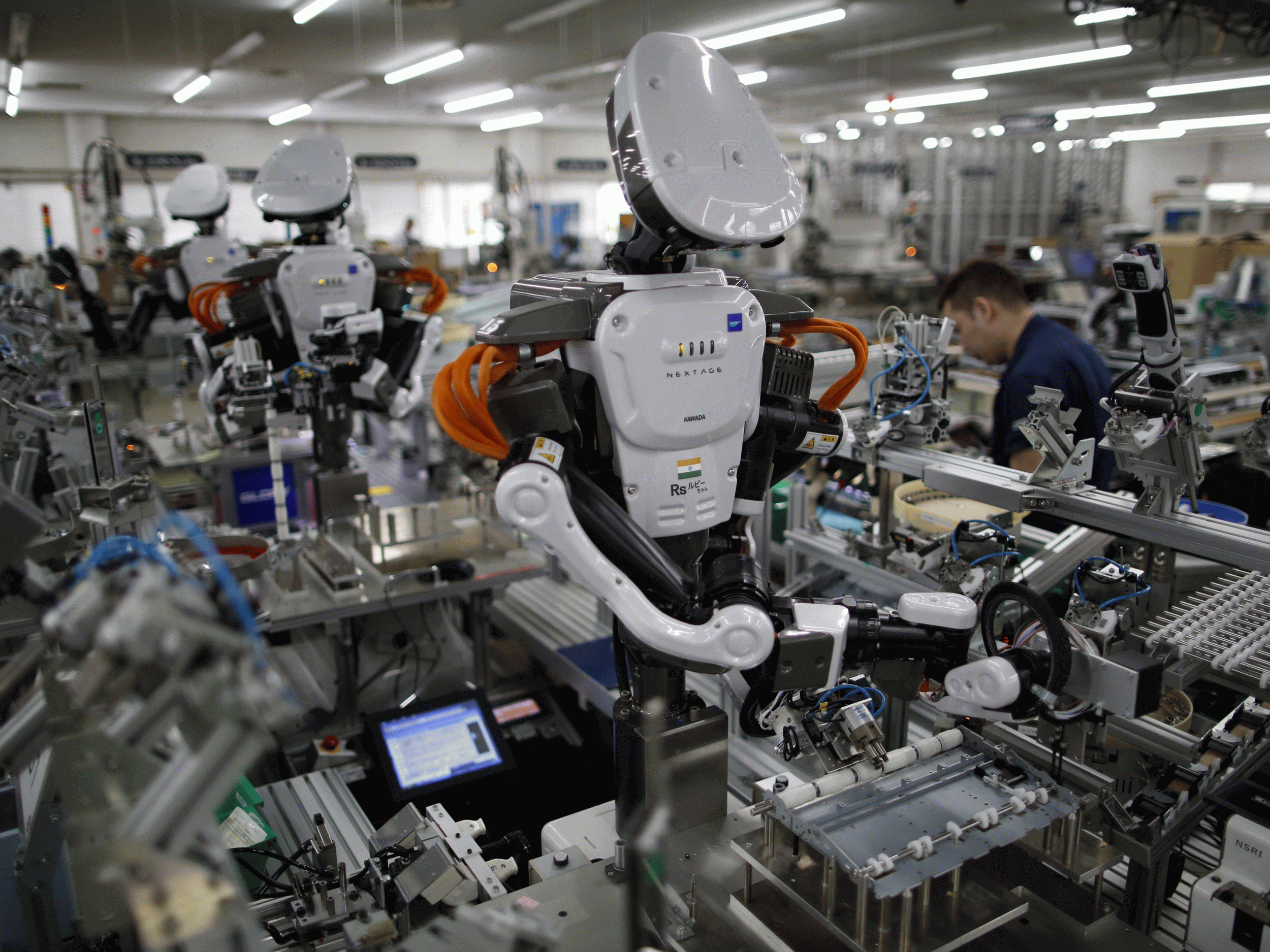Third of London jobs to be taken by robots within 20 years, says report
Brexit could accelerate the adoption of new technologies to replace human labour, according to Centre for London

Almost a third of jobs in London have high potential to be done by machines within the next 20 years, a new study has found.
Automation could be accelerated if immigration policy tightens after Brexit, causing labour shortages, think tank the Centre for London said.
It estimates that around one in five jobs have medium potential for automation, while 48 per cent have low potential.
People in low- and medium-skilled jobs are reportedly likely to bare the brunt of the impact from increased use of AI and other technologies.
The wholesale, retail, transportation, storage, accommodation and food sectors – which employ a million people in the capital – will be particularly hard hit.
These are also some of the sectors which are most dependent on migrant labour: 32 per cent of construction workers, and 35 per cent of accommodation and food service workers, are from EU countries other than the UK.
These sectors also offer relatively low pay and often have comparatively informal recruitment processes. The report says that, as a consequence of this, they may find it more difficult to adapt to any new work permit regimes post-Brexit, which require minimum pay levels and applications in advance of arrival in the UK. This in turn may strengthen the business case for deployment of automation.
However, the report also argues that London’s economy and its workers are relatively well placed to adapt to the changing nature of work, due to high skill levels and the presence of strong specialist sectors.
Richard Brown, research director at Centre for London, said: “London has an extraordinary history of economic resilience, and is well placed to ride the wave of disruption that rapid technological change and Brexit might unleash.
“But there could be losers as well as winners; lower skilled workers undertaking routine tasks could see their jobs disappear, and some may struggle to develop the skills needed for new roles.
“Government, schools, colleges and employers need to work together to ensure that skills, regulatory and welfare policies work together to strengthen London’s human capital and enhance both fairness and prosperity.”
Subscribe to Independent Premium to bookmark this article
Want to bookmark your favourite articles and stories to read or reference later? Start your Independent Premium subscription today.

Join our commenting forum
Join thought-provoking conversations, follow other Independent readers and see their replies